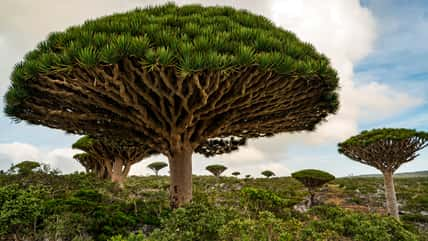The Oldest Creatures On Earth Could Dangerously Multiply Due To Climate Change, Upsetting Our Oceans

Billions of years before plants and animals evolved into being, tiny creatures called “prokaryotes” existed on Earth.
These microscopic organisms cannot be seen by the human eye, and they make up 30 percent of life in the world’s oceans.
The organisms are important as they help maintain the balance of the ocean ecosystem, but new research has found that climate change could upset this balance.
Prokaryotes are incredibly resilient to climate change. As a result, they could take over marine environments, reducing the availability of fish and interfering with the ocean’s ability to absorb carbon emissions.
Prokaryotes consist of bacteria and another type of single-celled organism known as “archaea.” They are believed to be the oldest cell-based life forms on Earth.
They thrive on land and in water all over the world. For every human that exists on the planet, there are about two tons of marine prokaryotes.
They grow extremely quickly, emitting a lot of carbon in the process. Prokaryotes at an ocean depth of around 656 feet generate 20 billion tons of carbon per year, which is double what humans produce.
Phytoplankton—another microscopic organism that turns sunlight and carbon dioxide into energy through photosynthesis—helps offset carbon production.
Phytoplankton, along with other ocean processes, absorb up to a third of the carbon that humans release into the atmosphere each year, helping to slow down the rates of global warming.

biletskiyevgeniy.com – stock.adobe.com – illustrative purposes only
Researchers wanted to figure out how prokaryotes respond to the world warming up. They built computer models using data from dozens of scientific surveys of the world’s oceans that were conducted over the course of decades.
They found that the biomass, or total global weight of marine prokaryotes, would decline by about 1.5 percent for each degree of ocean warming.
The researchers had previously predicted that other creatures, such as larger plankton, fish, and mammals, would decline by three to five percent.
Since the number of other creatures will dwindle at greater rates than the prokaryotes, marine ecosystems in the future will be dominated by prokaryotes.
It is possible that more energy and nutrients will be directed toward prokaryotes and away from fish, which humans rely on for food.
In addition, the researchers estimated that prokaryotes in the top 656 feet of the oceans will produce 800 million tons of carbon per year for each degree of warming. This equates to the emissions of the entire European Union today.
By the end of the century, Earth’s oceans are expected to warm by between 33.8 degrees Fahrenheit and 37.4 degrees Fahrenheit due to human-induced climate change.
If prokaryotes do increase carbon production as predicted, the oceans will be unable to absorb human carbon emissions as efficiently.
Fish populations will also decrease, potentially restructuring marine food webs in favor of prokaryotes and posing a problem for global food supply. The oceans are a major protein source for roughly three billion people worldwide.
More studies must be conducted to determine how quickly prokaryotes can adapt to changing conditions in marine environments.
The research was published in Nature Communications.
Sign up for Chip Chick’s newsletter and get stories like this delivered to your inbox.
More About:News





